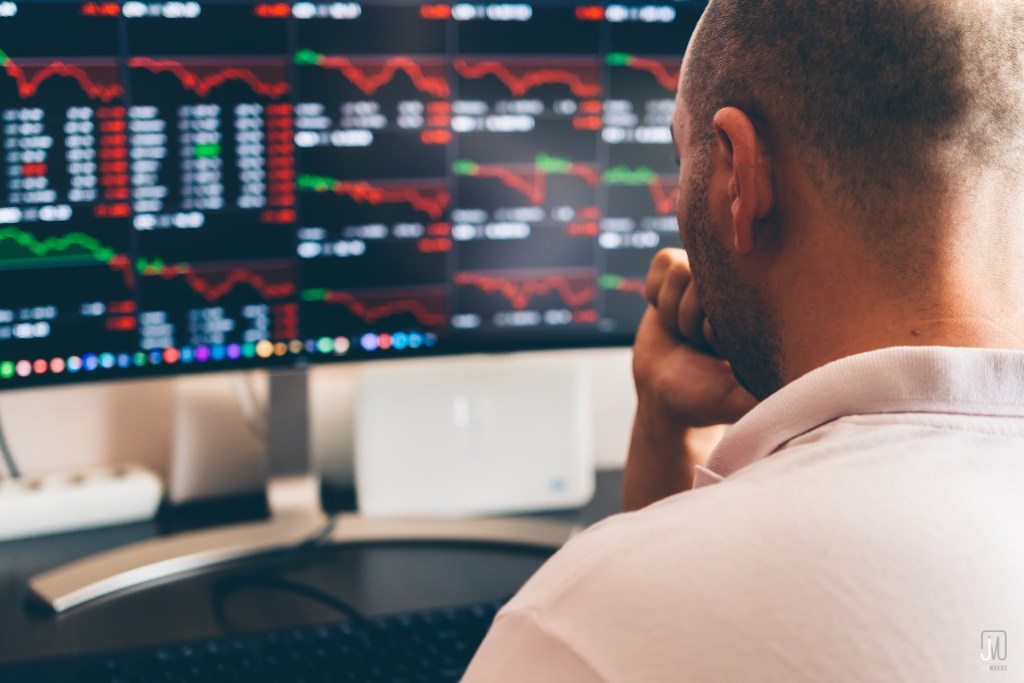Blockchain can make it easier to transfer property rights and other assets by reducing transactional costs and boosting trust between investors. But can it be used by the stock exchange?
The rules that govern trades in financial assets have changed little over the past two or three centuries. Some say those rules have worked relatively well (apart from a few world-shattering crashes now and then). Does it need to change? Should it change? Can it change?
I believe it needs to, should, and can. What can we do to convince boards, investors, sellers, buyers, intermediaries, and supervisory bodies to adopt new solutions? Assuming change is feasible, will blockchain be a major step toward doing away with traditional stock exchanges?
That not-so-good old-timey exchange
Today’s investor relies on a traditional system of buying, selling and accounting for transactions that are old enough to be called ossified. The system generates considerable costs and adds to the time needed to close transactions. This is because trading in financial assets requires multiple entities arranged in a complex web of intermediaries, settlement systems and business partners. Whether they are investors, brokers, depositaries, stock exchange management or central supervisory bodies, all actors taking part in asset trading – buying, selling, or transferring – are obliged to generate messages, receive authorizations, and continuously update transaction status records.
Blockchain can change all this. Key transaction-related processes such as issuing securities, trading, clearing, and settlements could be handled swiftly and without much friction with the use of blockchain’s distributed ledger.
And then came the crash
There is another factor to consider: trust, the willingness of investors to believe and have faith in the general rules underpinning the stock exchange system.
The fiscal crisis of 2008, triggered (in part) by the proliferation of opaque financial instruments, called into question the transparency of the existing global model. The crash we experienced a decade ago laid bare the need to search for alternative solutions that would help build a more transparent, tamper-proof system. What emerged in the wake of the crash were new government regulations that today, in the U.S., are being rolled back.
Blockchain cannot be rolled back.
Given its properties, I think that blockchain would give us hope for a stock exchange of the future. In a blockchain-based exchange, murky transactions would become a thing of the past. Smart contracts could dispel doubts as to whether settlements have been made correctly. Supervisory mechanisms – today indispensable, albeit inefficient – would no longer be needed.
Trust would be a given. Blockchain hits the largest trading floors. The investment market is on the cutting edge of early blockchain deployments.
For instance, Nasdaq management has been looking at blockchain for three years. As early as May 2015, the private share-trading platform, Linq, was launched to enable unlisted companies to represent their shares digitally. Last year, Nasdaq Stockholm and the Swedish bank SEB started testing the use of blockchain to register all transactions in real time. Blockchain-based solutions have undergone rigorous testing on the Nasdaq Tallinn exchange. The premise of the project is that corporate shareholders would be able to vote during investor meetings or digitally transfer their voting rights to a proxy.
Blockchain on stock exchange
The London Stock Exchange Group, in cooperation with IBM, has begun testing a blockchain-based platform to fully digitalize trades in the shares of small and medium-sized enterprises. The tests are being carried out by the Italian operator of LSEG, Borsa Italiana. And the Australian Securities Exchange plans to finish its two-year-long process this year to develop a system that will increase operations transparency and enhance investor security.
One remarkable example of how blockchain can become a fact of life is the “Delaware Initiative.” In 2017, Delaware, known for its high concentration of listed companies (and business-friendly regulations and taxes), legally recognized blockchain as an official settlement system. State authorities are now setting up a system that will allow businesses to generate and store any company-related data. People who lobbied for blockchain in Delaware noted the complex nature of the securities market. They were particularly concerned about the challenge of tracking share ownership. The project’s promoters said that blockchain is a good solution that will make it possible to more easily verify share ownership and considerably reduce transaction times.
This is neither fantasy nor hype. This is happening now.
How the blockchain future will flower
Financial institutions must, above all, be certain that their customers’ money is secure. It is therefore unsurprising that even given the examples related, capital markets are still slow to embrace blockchain. To see genuine progress, certain conditions must be met, primary among them the establishment of the most stringent security standards for the block system. Blockchain implementations require proper laws. Unfortunately, right now, the legislative environment everywhere is somewhat polarized and inconsistent.
We must also bear in mind that technology continues to be limited. Work is underway to boost its capacity and reduce transaction costs. On the New York Stock Exchange, there are around three billion trades on a normal day. The development of new platforms to handle such volume is likely to prove complicated and time-consuming. And that translates into costs.
Nevertheless, I believe that financial markets will see the most important implementations of the blockchain. They will become the training ground for other sectors.
This article was originally posted on DataDrivenInvestor.com. It is reposted here with the permission of Justin Chan, founder and platform chief of
Data Driven Investor. Read the original.
. . .
Related articles on blockchain
– Blockchain poised to shake up our lives
– Will quantum computers doom the blockchain?
– Why do we care about blockchain technology?










Check Batin
After over 5 years involvement in the cryptocurrency space consulting companies hoping to enter it I have some strong thoughts on this subject.
The vast majority of people miss the forest for the trees when talking about blockchain. Blockchain has very little value at all. It is the world’s most inefficient and expensive data layer. No one should be using it for anything except one singular task: as part of a decentralized economic security model. I.e. Bitcoin. If you find yourself building a new blockchain for any reason at all, chances are you are wasting everyone’s time. The unique properties of Bitcoin are not from a blockchain, they are from the network participants and the Nash equilibrium encouraging their security roles. A blockchain itself is otherwise near useless.
Blockchain is a ridiculous mirage conjured by media and experts attempting to understand the decentralized security model. Bitcoin is the real trust people are looking for and you don’t need your own blockchain to benefit from its properties of trust. Prove a system state by publishing it on the Bitcoin blockchain, engage in atomic asset swaps and other smart contracts. Don’t make a blockchain. Build in layers upon Bitcoin.
Oscar P
The problem I’ve got with smart contracts is gating the movement of currency on something that happens outside the domain of the smart contract system.
I can guarantee that I will forward to you 10% of the transfers into a specific account if and only if you first transfer five thousand e-bux into it; the conditions and outcomes take place strictly within the bounds of that one system. The same computer that evaluates the contract also determines how the money moves.
But what if I want to use smart contracts to convince you that I will pay you upon completion of a service? The smart contract system has no way of determining if you’ve actually completed that service. You might verify that the contract is in place and then scarper, since I have no way to revoke the contract.
Oscar P
The article argues that, at least in the case of smart contracts, the added complexity makes the solution incrementally worse than the status quo.
Zidan78
Good article, the point about complexity is key. Blockchain solutions are inherently unable to manage complexity because the functionality of trust and institutions whether corporations or governments is to manage the sheer amount of transactions coming in.
I don’t want to sign, read or be bothered with 500 smart contracts a day, and as Coase has told us 70 years ago, there is no such thing as a perfect contract anyway, because we have to incorporate informal structures and novel events we cannot anticipate in contracts. You cannot write perfect contracts because contracts concern the future, and we can only speculate about, but not know the future. And in case of dispute we need an arbiter and authority or else we’re stuck.
If everything was based on a contract there would be no corporations, there would be no government, there would be no safety regulation, because we’d all be signing bilateral contracts all day, and it would probably take up 90% of our time. Of course, that doesn’t work in large communities so we manage complexity through trusted institutions to which we defer tasks.
John Accural
Blockchains give us an algorithmic way of modeling chains of trust, just like the way humans invented money to model relationships of trust. Just because people are naive and take the mental shortcut of blockchain=money doesn’t mean the tech is worthless.
I know us programmers just love to be as pessimistic as possible, but why let banks lull us into thinking there’s anything wrong with blockchains just because cryptocurrencies are a disruptive market? Let’s keep in mind people showed the same sort of pessimism for the internet in it’s early years.
Zoeba Jones
Hav smart contracts worked? No. People arguing over the meaning of words in court is not a bug. It is not a flaw. It’s the whole point.
Does deflationary currency work? Absolutely not. It simply encourages money hoarding.
Trust isn’t the problem, not that blockchain solves that problem either.
So what’s the point? What are we getting for the energy we’re spending on mining shitcins (and they’re all shitcoins, because none of them know how currency works)?
TomCat
Now, the cryptocurrency startups are even worse, it’s true. But the idea that we need transparent proofs of our trust in the integrity of financial systems is super duper real. The points that OP made about blockchain technology not meeting those needs are entirely valid, but “we need to trust each other” is simply not helpful without another solution that provides these transparent proofs.
I agree that decentralized trust systems which require a high degree of technical skill to validate – or even just use – are worse than trusting a third party. If it didn’t work for GPG I don’t understand why people think it will work for cryptocurrency.
AdaZombie
Some aspects of that are just sheer paranoia.
Proper implementation is one thing, rolling your own and trusting in random is another.
Like you can trust SSL or ssh itself, but not the computer that you’re using in that it might be compromised. But it’s such a low risk that it’s not worth losing sleep over
TomaszKik
Nice read
ZoraBora
Blockchain token projects are sometimes pressured to use such market-making operators because they need to show their major investors and token holders that there is significant market interest in their project and things are going well.
TomK
Blockchain is a specialized trick for coinz and really doesn’t have any outside applications other that something in the trading industry for that purpose.
As soon as you start trying to “look outside the box” with coinz, you realize blockchain size will always be your ball’n chain and the only way to mitigate, is to put a head on to the chicken.
Now you have zero need for the blockchain.
Mac McFisher
Great post Norbert Biedrzycki and thanks for sharing
Adam Spark Two
While there are a number of things in this article I’d like to comment on, this quote from the article actually concerns me: “All information used to identify citizens and any other citizen-related data could be kept in a single global decentralized blockchain-based peer-to-peer database. Forging a document would require breaking into and modifying a blockchain, which is practically impossible.”
tom lee
Thanks for breaking this down! As I’ve always said in my entire career and fostered in me early on and passionate about it since:
“…Protect the weak from temptation and the strong from corruption…”
Tom Jonezz
It’s a bit like if everyone suddenly started getting really excited about how “chicken soup is going to change the face of the construction industry forever”. It’s literally nonsense: chicken soup doesn’t solve construction issues. Blockchains don’t solve the issues that it is being applied to, in many cases.
A blockchain is a datastructure that does a very specific thing. Most people who talk about applying blockchains for things have subtly misunderstood that thing, so their proposals don’t actually make sense. This is leading to a very expensive, very slow-motion technical train crash.